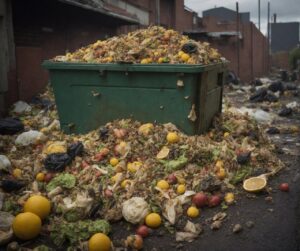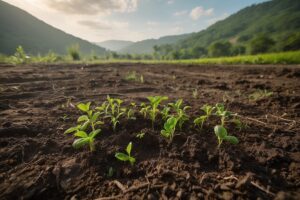From Trash to Treasure: Composting is the Secret Weapon Against Climate Change!
Composting is the Secret Weapon Against Climate Change!
Climate change is upon us, and it’s time to take action. But amidst all the talk of renewable energy and carbon offsets, there’s one solution that often gets overlooked: composting. Yes, you heard that right – composting. It may not sound glamorous, but trust me, it’s a game-changer in the fight against climate change.
Why Composting Matters
The world is facing an unprecedented climate crisis, with rising temperatures, extreme weather events, and the urgent need for sustainable solutions to mitigate the environmental impact of human activities (IPCC, 2021). Amidst this crisis, composting emerges as a powerful yet often overlooked tool in the fight against climate change, holding the potential to transform organic waste into a valuable resource (EPA, 2022). Traditional waste management methods, such as landfilling and incineration, contribute significantly to greenhouse gas emissions, with the waste sector accounting for approximately 3.2% of global emissions (IPCC, 2014). As stewards of the environment, we play a crucial role in driving the adoption of innovative practices and technologies to address the climate crisis, with composting being a key strategy in our arsenal (Sustainable Waste Management, 2020).

The Power of Compost Soil
Picture this: mountains of food scraps, yard waste, and other organic materials piling up in landfills, rotting away and releasing methane – a potent greenhouse gas that’s heating up our planet faster than ever before. It’s a grim reality, but one that composting can change. Composting takes all that organic waste and turns it into something magical: nutrient-rich soil that’s like gold for plants. But here’s the kicker – this soil doesn’t just help plants grow, it also traps carbon dioxide, effectively removing it from the atmosphere and slowing down climate change.
Bringing Composting to Life
Think of compost soil as a superhero in the battle against climate change. Not only does it capture and store carbon dioxide, but it also improves soil health, making it more resilient to extreme weather events and better able to support crops. Studies have shown that compost soil can increase soil carbon sequestration by up to 1.5 tons of CO2 per acre per year – that’s a lot of carbon being locked away underground! So how can we make

composting a practical solution? It begins with each of us. By incorporating composting into waste management plans, establishing on-site composting facilities, and collaborating with local composting services, we can effectively transform organic waste into a valuable resource while simultaneously lessening our environmental impact. Composting offers significant cost savings for businesses, reduces environmental footprints, and contributes to corporate sustainability goals (Sustainable Waste Management, 2020).
Real-World Success Stories
Don’t just take my word for it – look at cities like San Francisco, where a comprehensive composting program has diverted over 80% of waste from landfills, reducing greenhouse gas emissions by millions of tons per year. Or take the University of California, Davis, which has diverted thousands of tons of organic waste through campus-wide composting initiatives. Barriers to widespread composting adoption include regulatory hurdles, logistical issues, and cultural resistance, which can be addressed through policy reforms, infrastructure investments, and public education campaigns (EPA, 2022). Strategies for overcoming these barriers include collaborating with local governments, engaging with community stakeholders, and leveraging technological innovations in composting systems (Sustainable Waste Management, 2020). Scaling up composting efforts requires coordinated action at multiple levels, from individual households to municipal and national initiatives, as well as international cooperation to share best practices and drive global change (IPCC, 2021).

Conclusion
Composting is a secret weapon against climate change, with the potential to transform organic waste into a valuable resource that sequesters carbon, improves soil health, and contributes to a more sustainable future. As stewards of the environment, it is imperative that we prioritize the adoption of composting practices in our waste management strategies as part of a comprehensive approach to mitigating the climate crisis and building resilient communities. By leading the charge in leveraging composting as a climate change solution, we can inspire others to follow suit and create a more sustainable and resilient world for generations to come.
